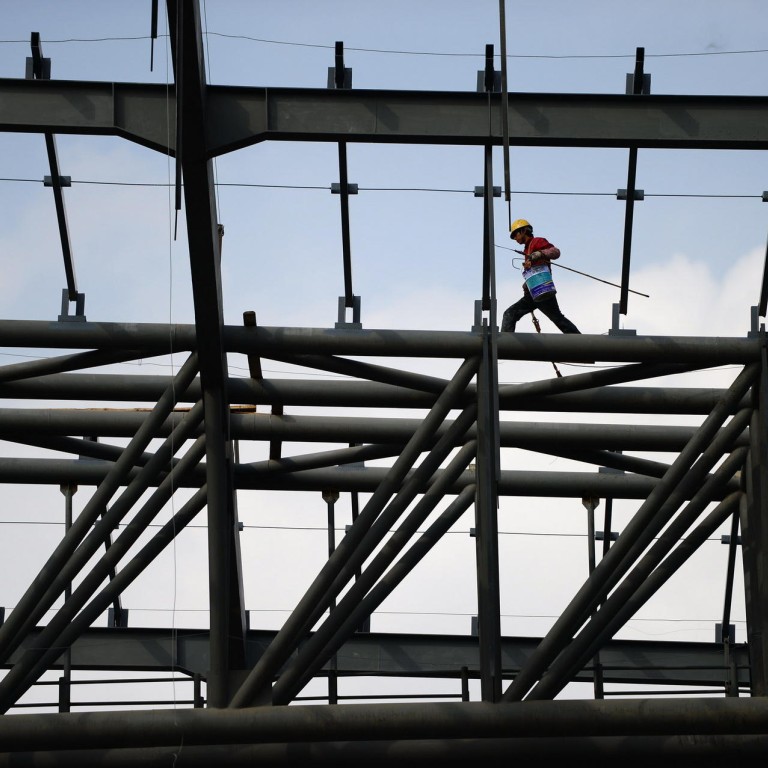
New | Unattractive returns a challenge for China PPPs
Partnerships face difficulty in luring private capital to ease local governments' debt burden
Beijing's efforts to promote public-private partnership (PPP) as a way to attract private capital to infrastructure projects and ease the debt burden on local governments face difficulties due to unattractive returns, analysts and an infrastructure firm said.
Wang Dehua, the chief financial officer of Zhejiang Expressway, said newly built toll roads in Zhejiang province were mostly loss-making and many non-listed infrastructure projects were not delivering high returns, but private enterprises would require at least an 8 per cent to 10 per cent rate of return when investing in such projects to cover their high financing costs.
Sun Jie, secretary general of the public-private partnership research committee at the China Public Finance Academy, a think tank set up by the Ministry of Finance, said private-sector investors should not expect very high returns from such projects. "Some of them are for public welfare," he said. "It would be unfavourable for the public if the returns are too high."
The ministry rolled out 30 "model PPP projects" for public tender at the end of last year, with total investments worth 180 billion yuan. Sun said 22 of them were finished projects held by local government financing vehicles that would be transferred to the private sector through transfer-operate-transfer schemes, aimed at shifting the debt burden.
Sun said the costs of financing PPP projects would rise when the debt-issuing body changed from local government financing vehicles to private firms.
"Special-purpose vehicles holding PPP projects have lower credit ratings than local government financing vehicles," he said.
State-owned enterprises, which can also participate as "private partners", would have a definite advantage when bidding for such projects because of their lower financing costs. In the case of Zhejiang Expressway, which is state-owned, its cost of financing was close to the benchmark rate, about 5.6 per cent for a one-year loan, after the rate cut late last year, Wang said.
Potential default of existing projects may affect the confidence of private investors, making them reluctant to participate
"We are considering how to participate in the [PPP] projects. But if there's not much profit, we may not participate," he said.
An audit report by the National Audit Office in 2013 revealed that local government debt in China amounted to 17.9 trillion yuan, of which 10.9 trillion yuan was considered the direct responsibility of local governments.
According to the country's new budget law, only debts recognised by the Ministry of Finance will be backed by fiscal resources.
Shen Jianguang, an analyst at Mizuho Securities Asia, said he expected local government debt to reach 20 trillion to 25 trillion yuan following the declaration of local government liabilities to the central government in January.
Analysts expect the shifting of infrastructure projects from local government financing vehicles to the PPP model to take a long time, which would restrict investment as the new budget law prohibits local governments from borrowing money by means other than provincial government bonds approved by the State Council. The slowdown in investment growth would have a tightening effect on the economy, Shen said.
"Potential default of existing projects may affect the confidence of private investors, making them reluctant to participate, particularly when the near-term economic outlook is sluggish," he said.
Shifting the debt burden from local governments to the private sector would lead to a further surge in corporate debt, which has already increased at a much faster pace than gross domestic product growth since the global financial crisis in 2008. Credit insurer Euler Hermes estimated China's corporate debt more than trebled to 90 trillion yuan between 2007 and 2013.
Rocky Tung, an economist at Coface, another credit insurer, said he did not expect a huge increase of corporate debt due to PPP projects because the response from the private sector might not be very enthusiastic.
